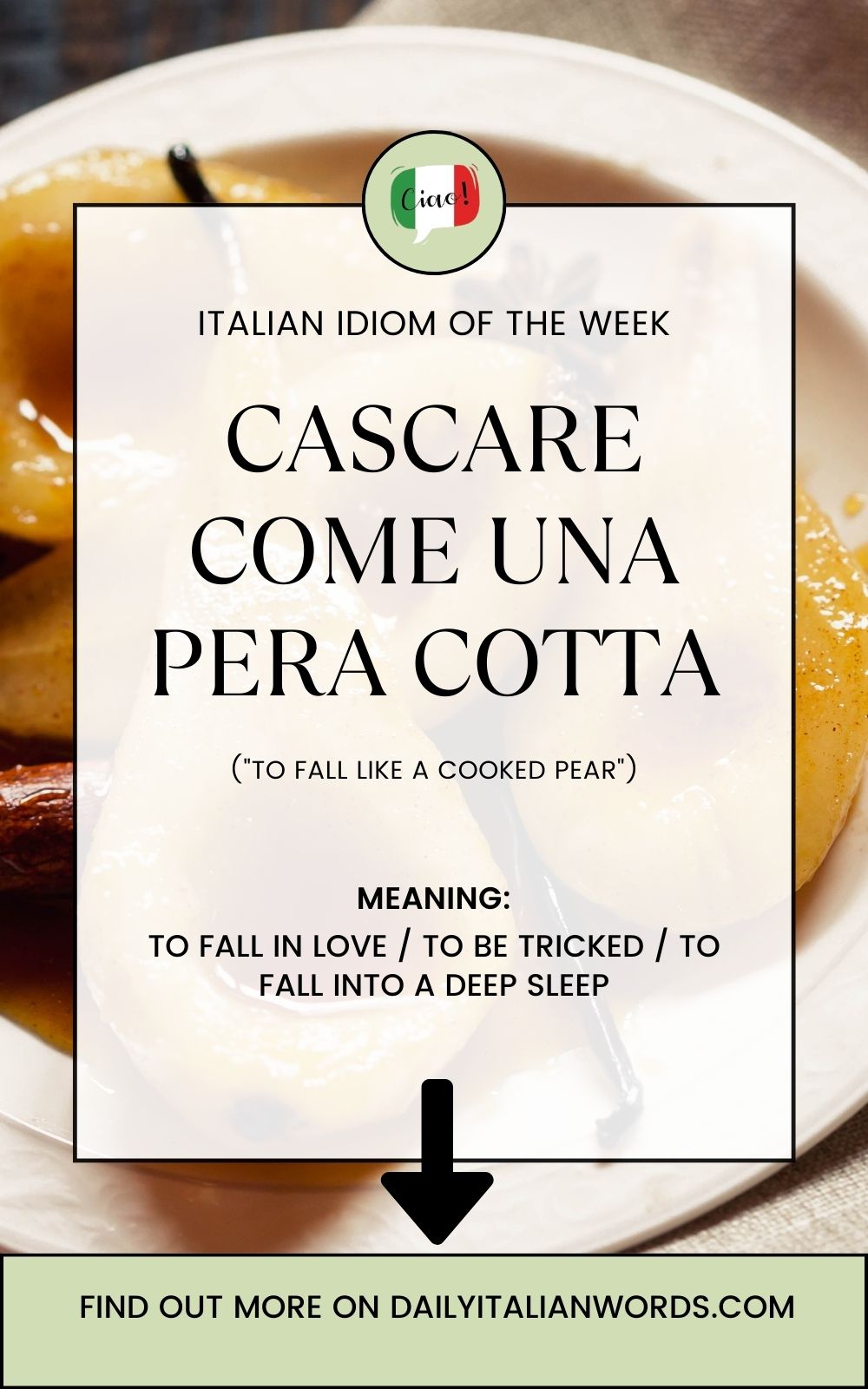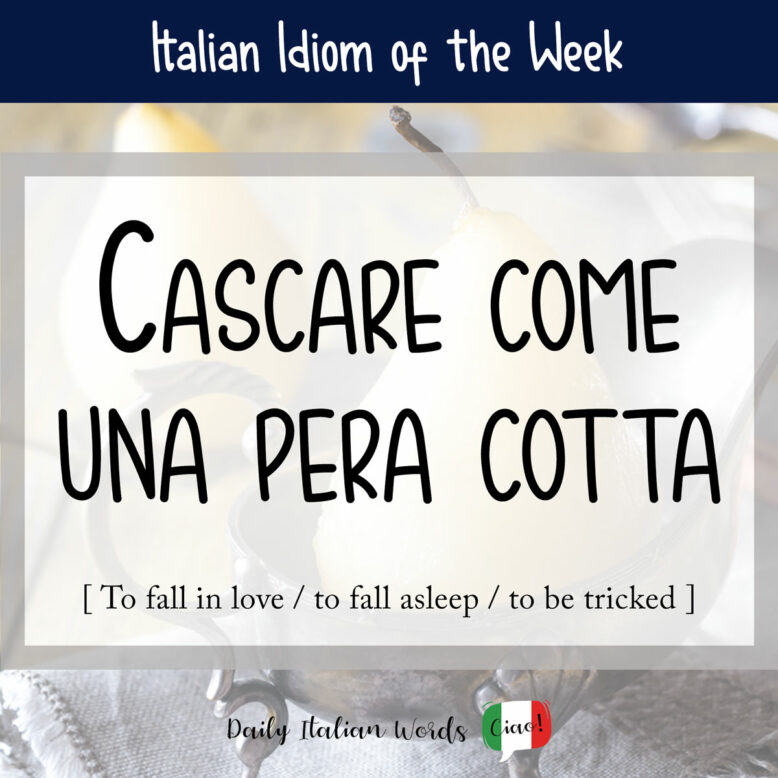Today we will be looking at an Italian idiom that revolves around one of Italy’s favourite sweet dishes, the pera cotta (cooked, poached or stewed pear).

Although pere cotte are truly delicious, especially with a light sprinkling of zucchero (sugar), being called one isn’t exactly a compliment: it has the figurative meaning of weak or feeble.
The various facets of this word are reflected in today’s idiom cascare come una pera cotta (literally “to fall like a cooked pear”), which has three possible meanings depending on the context in which it is used.

1 To fall head over heels in love
When you fall in love with someone, it can often be a bit of a messy affair, much like a pera cotta that falls to the ground with a splat! In this case, cascare may be replaced by innamorarsi (to fall in love) and the word cotta can be removed.
Non erano passati neanche cinque minuti da quando si erano conosciuti, e lui era già cascato come una pera cotta.
Not even five minutes had passed since they met, and he had already fallen madly in love.
2 To drop into a deep sleep
At the end of a long day, you may be so tired that you collapse into bed like a rock (in English) or a cooked pear (in Italian). Quite often, cascare is replaced by cadere (to fall) when this is the meaning.
Dopo la festa, ero così stanco che sono caduto sul letto come una pera cotta.
After the party, I was so tired that I collapsed into bed.
3. To be tricked / fall for something
Because pere cotte people are weak, they easily fall for the trickery of others. In this case, Italian use the pronominal form cascarci.
Quel babbeo ci è cascato come una pera cotta!
That fool fell for it!

Heather Broster is a graduate with honours in linguistics from the University of Western Ontario. She is an aspiring polyglot, proficient in English and Italian, as well as Japanese, Welsh, and French to varying degrees of fluency. Originally from Toronto, Heather has resided in various countries, notably Italy for a period of six years. Her primary focus lies in the fields of language acquisition, education, and bilingual instruction.


